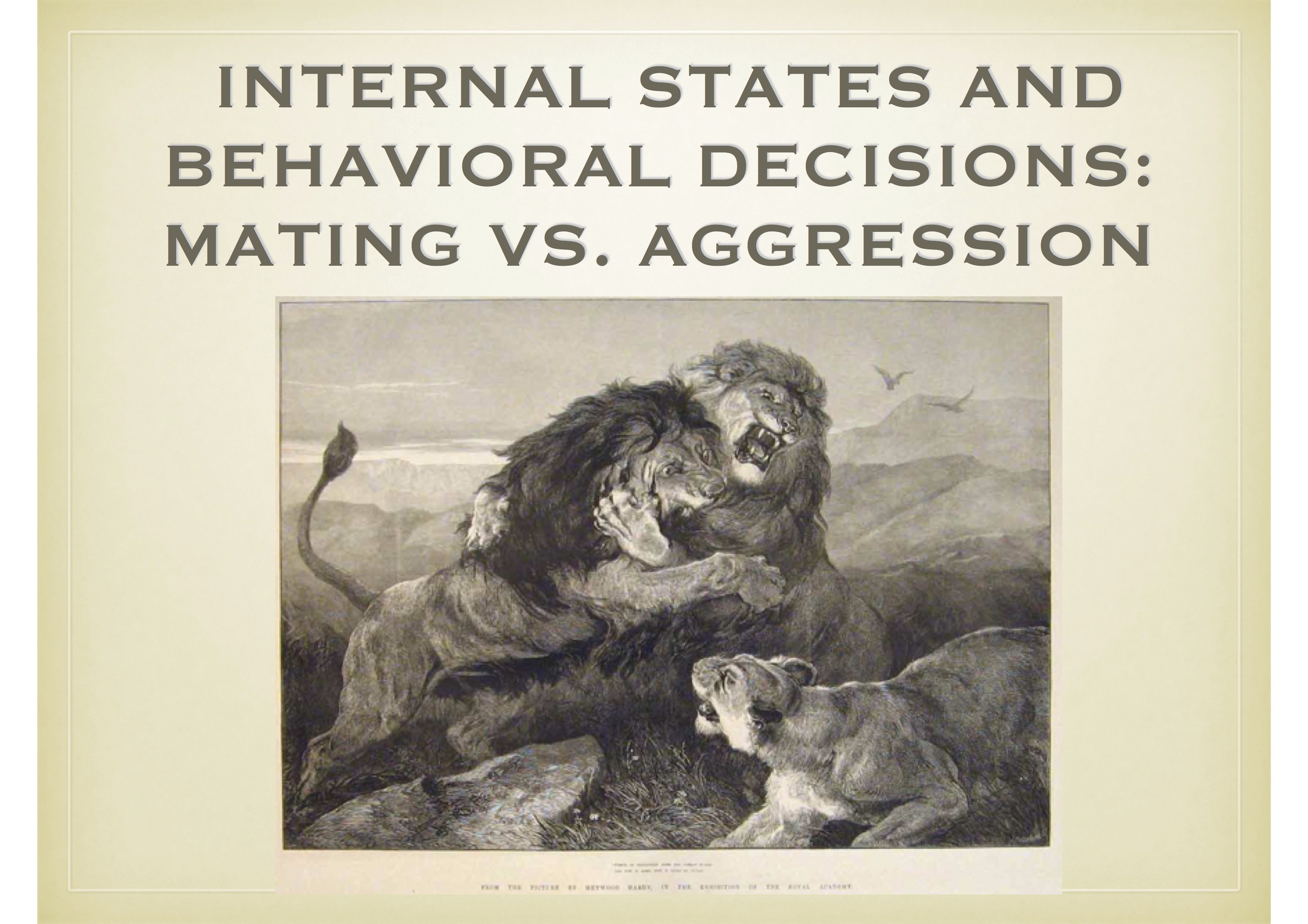Prof. David Anderson
The neural circuitry of sex and violence

Animals often have to make rapid decisions between different, competing behaviours, such as fighting, mating, or freezing. These decisions are controlled by sensory cues, the animal's internal state and its previous history. In humans, these innate behaviours are associated with emotion states such as fear, anger and love. Prof. Anderson and his team are studying the control of aggression vs. mating, in both mice and fruit flies, as a model for understanding how internal states, such as arousal or other so-called "emotion primitives," influence decisions between innate behaviours. This talk focuses on how aggression circuits are organised in the brain, and their relationship to circuits that control mating behaviour. Studies have revealed that mice and flies contain "modules" (relatively small groups of neurons) that control both aggression and mating, suggesting that this is an evolutionarily ancient circuit "motif." The role of these modules, and their relationship to decision-making and internal brain states, is discussed. The long-term objective of these studies is to provide insights into the brain mechanisms that link emotion and decision-making, and their evolutionary origins.
About speaker:
Prof. David J. Anderson is the Seymour Benzer Professor of Biology at the California Institute of Technology in Pasadena, CA, and an Investigator of the Howard Hughes Medical Institute. Over the last 15 years, Prof. Anderson’s research focuses to the study of neural circuits that control emotional behaviours in animal models. He has been at the forefront of developing and applying new technologies for neural circuit manipulation, such as optogenetics and pharmacogenetics, to the study of emotional behaviours such as fear, anxiety and aggression, in both mice and the fruit fly Drosophila melanogaster.
About Chair:
Prof. Isabelle Mansuy is Professor in Neuroepigenetics at the Medical Faculty of the University Zürich and the Swiss Federal Institute of Technology Zürich (ETHZ). Her research examines the epigenetic basis of complex brain functions and the heritability of acquired traits across generations in mammals. It focuses on the mechanisms underlying the expression and the inheritance of the effects of environmental factors such as traumatic stress in early life, on behavior and physiology, and their link with diseases in humans.

 Download
Download


